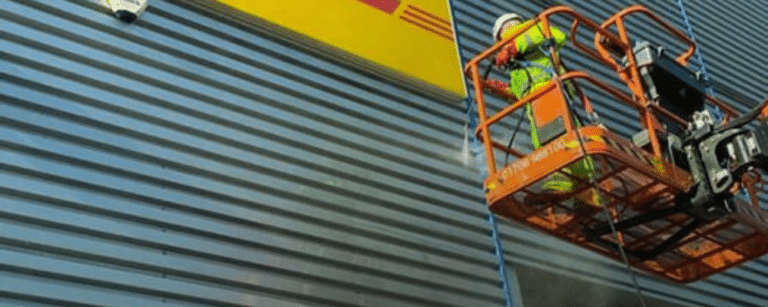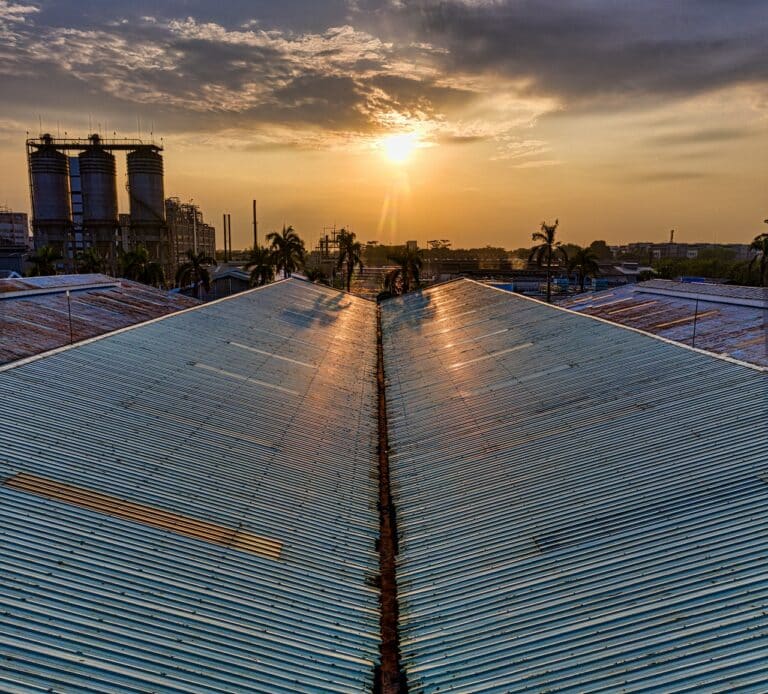A clean and well-maintained industrial workplace is crucial for ensuring the safety, health, and productivity of your workforce. As commercial and industrial building, painting, and maintenance contractors specialising in on-site spraying, application of protective coatings, and building services, our team at G.I.Sykes possesses the expertise to help you implement industrial cleaning best practices for a secure and efficient work environment.
This comprehensive guide delves into the fundamental aspects of industrial cleaning, including the importance of regular inspections, crucial areas for cleaning, the benefits of professional cleaning services, and the role of training and communication in maintaining a clean workplace. Read on to learn these essential best practices and elevate your workplace safety, hygiene, and efficiency to build a strong foundation for your industrial operations.
The Importance of Regular Inspections and Assessments
Regular inspections and assessments play a crucial role in maintaining a clean and safe industrial workplace, as they help identify areas requiring attention and ensure that cleaning procedures are effective.
- Scheduling Inspections: Establish a regular schedule for inspections, and conduct them during times that do not disrupt operations. This process might include daily, weekly, or monthly checklists depending on your facility’s specific needs and the nature of your industry.
- Identifying Areas for Improvement: During inspections, identify areas where cleanliness and safety can be improved — addressing areas prone to dust, debris or contamination, and potential hazards or operational inefficiencies.
- Evaluating Cleaning Methods: Assess your current cleaning procedures to determine their effectiveness and consider implementing new methods or technologies to enhance industrial cleaning results.
Crucial Areas for Industrial Cleaning
Some areas within an industrial facility require specific attention to maintain a safe and efficient workplace. These critical areas include:
- Production Areas: Regular cleaning of production machinery, equipment, and workstation surfaces is essential for preventing contamination, maintaining optimal operating conditions and reducing the risk of breakdowns or malfunctions.
- Floors: Industrial floors are exposed to dirt, dust, chemicals and other contaminants that may result in safety hazards or inefficient operations. Proper cleaning and maintenance of flooring materials help minimise accidents and prolong the lifespan of your flooring investments.
- Storage and Warehouses: Keeping storage areas and warehouses clean helps prevent contamination, maintain efficient inventory management, and ensure the safety of your employees. Regularly check for damaged or expired items, remove debris, and organise stored goods neatly.
- Restrooms and Breakrooms: Regularly cleaning and sanitising restrooms and breakrooms contribute to the overall well-being of the workforce, helping to reduce illnesses and absences.
The Benefits of Professional Industrial Cleaning Services
Professional industrial cleaning services provide an unmatched level of expertise and efficiency, making them a preferred choice for maintaining a safe and clean workplace.
- Customised Cleaning Solutions: Industrial cleaning professionals can create customised solutions to meet the specific needs of your facility, catering to unique requirements and industry regulations.
- Skilled and Trained Technicians: Professional cleaners have the knowledge and experience to handle various cleaning tasks, ensuring that your workplace is maintained to the highest standards.
- Access to Advanced Equipment and Technologies: Industrial cleaning services utilise the latest cleaning equipment and technologies, ensuring thorough and efficient cleaning of your facility.
- Time and Cost Efficiency: Outsourcing your industrial cleaning needs can save valuable time, allowing your staff to focus on their primary responsibilities. In addition, a professional cleaning service will often be more cost-effective due to their expertise, access to advanced equipment, and economies of scale.
Training and Communication for Maintaining Cleanliness Standards
Training and communication are essential components for reinforcing the importance of cleanliness standards and ensuring that your team plays an active role in maintaining a safe and efficient workplace.
- Ongoing Training: Provide regular training for your employees on proper industrial cleaning procedures, safe handling of chemicals, and proper use of equipment. This continuous education helps promote a culture of cleanliness and responsibility.
- Communication Channels: Establish clear communication channels to share new cleaning procedures, address concerns, or report safety hazards. Encourage open dialogue between employees and management to maintain a clean and safe environment.
- Visual Aids and Signage: Displaying visual aids, such as posters or signs, throughout your facility reinforces the significance of maintaining cleanliness standards and serves as a constant reminder for your staff.
Complying with Industry Regulations and Guidelines
Compliance with industry-specific regulations and guidelines ensures that your business follows best practices and meets legal requirements related to industrial cleaning and workplace safety.
- Familiarise Yourself with Regulations: Stay informed about the latest industry regulations and guidelines that pertain to your sector, and ensure that your facility complies with these requirements.
- Documentation and Record-Keeping: Maintaining proper documentation and record-keeping related to your facility’s industrial cleaning, inspection and staff training is crucial for demonstrating compliance during audits or inspections.
- Hazardous Waste Disposal: Adhere to the correct disposal procedures for hazardous waste materials generated during the cleaning process, as stipulated by local and national regulations, to ensure the safety of your employees and the environment.
By applying these best practices for industrial cleaning, you stand to gain significant benefits in terms of workplace safety, operational efficiency, and regulatory compliance. Regular inspections, targeted cleaning, professional cleaning services, employee training, and compliance with industry guidelines are integral elements for achieving a clean, safe, and efficient industrial work environment.
Ensure a Safe and Efficient Workplace with G.I.Sykes Industrial Cleaning Solutions
Prioritising industrial cleaning best practices is vital for maintaining a safe, healthy, and efficient workplace. Implementing regular inspections, focusing on critical areas, engaging professional cleaning services, and ensuring staff training and compliance with industry regulations are crucial strategies for achieving this goal.
At G.I.Sykes, our team of commercial and industrial building, painting, and maintenance contractors provides tailored solutions to help you uphold the highest standards of industrial cleaning and workplace safety. With our expertise in on-site spraying, application of protective coatings, and comprehensive building services, we can assist you in developing a strategy that meets your industry-specific needs.
Contact our experts today to discuss how G.I.Sykes can enhance your workplace safety and efficiency through our industrial cleaning solutions and services.



